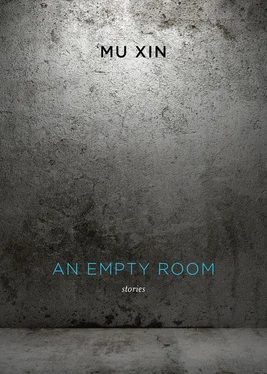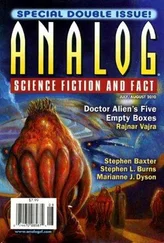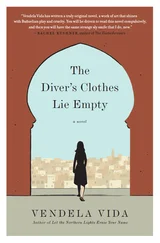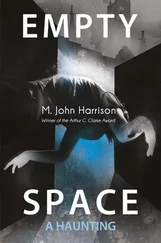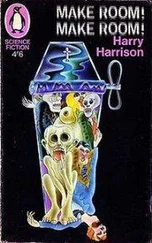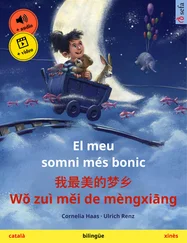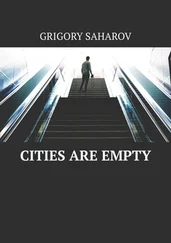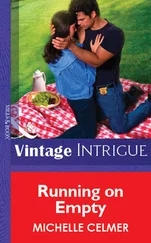Mu Xin - An Empty Room
Здесь есть возможность читать онлайн «Mu Xin - An Empty Room» весь текст электронной книги совершенно бесплатно (целиком полную версию без сокращений). В некоторых случаях можно слушать аудио, скачать через торрент в формате fb2 и присутствует краткое содержание. Год выпуска: 2011, Издательство: New Directions, Жанр: Современная проза, на английском языке. Описание произведения, (предисловие) а так же отзывы посетителей доступны на портале библиотеки ЛибКат.
- Название:An Empty Room
- Автор:
- Издательство:New Directions
- Жанр:
- Год:2011
- ISBN:нет данных
- Рейтинг книги:3 / 5. Голосов: 1
-
Избранное:Добавить в избранное
- Отзывы:
-
Ваша оценка:
- 60
- 1
- 2
- 3
- 4
- 5
An Empty Room: краткое содержание, описание и аннотация
Предлагаем к чтению аннотацию, описание, краткое содержание или предисловие (зависит от того, что написал сам автор книги «An Empty Room»). Если вы не нашли необходимую информацию о книге — напишите в комментариях, мы постараемся отыскать её.
In Our Time
An Empty Room
An Empty Room — читать онлайн бесплатно полную книгу (весь текст) целиком
Ниже представлен текст книги, разбитый по страницам. Система сохранения места последней прочитанной страницы, позволяет с удобством читать онлайн бесплатно книгу «An Empty Room», без необходимости каждый раз заново искать на чём Вы остановились. Поставьте закладку, и сможете в любой момент перейти на страницу, на которой закончили чтение.
Интервал:
Закладка:
When I turn around, I see Uncle’s back as he walks out of the living room.
I walk outside onto the porch and bask in the sunshine, deep in thought.
Of the three of us, I must be the only one who feels excited. Aunt doesn’t know that her husband is going to prove his complete fidelity and innocence. Uncle has to prepare his defense and must be nervous. I only pray that there’ll be no complications with my role here; nobody knows for certain when the servant will become the master. They are old and I’m not getting any younger. If no other legal heir suddenly emerges, my status seems secure. I’ll raise my dogs and cats and make my own pickled cucumbers. Oh, Lord, forgive me for thinking these thoughts. I pray for Uncle and Aunt, wishing them health and long life. I don’t have any money right now. If I did, I would ask the priest to hold a mass for my benefactors. .
“Alice, are you making the preparations?”
“What time is it?” I ask, even though I’m wearing my watch.
“Four o’clock.”
“I’ll start making the tea.”
It could be a coincidence: Aunt looks particularly well; Uncle’s thin hair is neatly combed. I could’ve changed into another dress, but am afraid that Aunt will make some connection in retrospect and suspect that I had learned earlier than she did what she should have known long ago. Her serious concern for forty years has no significance to me whatsoever.
The silver is polished to a shine and the china looks sparkling new. I haven’t broken anything in the three years I’ve lived here. I urge Uncle to prove his innocence so that: first, Aunt can finally feel relieved that her husband hasn’t failed her in any of his deeds; second, Uncle can free himself from this embarrassing situation — the resolution of a forty-year-old suspicion can at last clear his name as a perfect gentleman; and third, I’m reaching my limit having to bear the oppressive silence. Aunt should face her husband alone in dealing with their past. Obviously she’s wanted a third party to play witness, though I really cannot play this supporting role any longer. Please no more of this unfortunate supporting role.
Aunt and Uncle, as usual, are sitting across from one another in the middle of the oval table. I sit at the lower end; the seat at the upper end is vacant. I’ve pushed the flower vase aside so that there’s more room for the tea set. Suddenly, I become worried that Aunt won’t ask the question today or ever again. Would this be good or bad? If she doesn’t ask, we’ll be spared the torture, but the forty-year-old suspicion will never be resolved. So it would be better if she asks today. If she asks another time, Uncle, as usual, will not move nor speak, as if a chair sitting in another chair.
It’s still bright outside, night still far away. If it rains, it will get dark sooner, and the sound of the rain will make Aunt feel agitated.
What if Uncle doesn’t reply? And feels that his pride would be too injured to explain something that doesn’t need explaining? Shall I then speak on his behalf? Could I? Aunt would ask: Why should you speak for him?
“You are right. They are good,” Aunt says, chewing a biscuit.
“Right about what?” asks Uncle.
I quickly return from my thoughts and pick up a biscuit.
“That these biscuits are better than those made in Denmark.”
“You don’t say. Let me try one.” Uncle reaches for one as Aunt pushes the plate toward him.
“Today’s tea is good, too!” Aunt praises.
“Do you know how I made it?”
“I don’t know, but it has such a nice aroma!”
“It reminds me of a landscape in spring!” Uncle rubs his hands before picking up his cup again.
“Spring may come again, but the spring of life will never return!”
Old people talking about spring is no different from old people singing. I must stop that singing. “Well,” I explain, “it was a schoolmate, a Chinese man, who taught me. They call it hong-cha , ‘red tea.’ You boil the red tea leaves then add dried rose petals, making sure that the lid is covered tight to keep the aroma in. As for what they call lü-cha , ‘green tea,’ you pour boiling water directly onto the leaves. The heat should be turned off when the water just begins to simmer. Jasmine can be added. I guess the principle is not unlike matching red wine with meat and chilled white wine with fish. .”
“Exactly, it is about matching — harmony!”
“Indeed, it is the same for people,” says Aunt.
I stand up to refill their cups.
“Your schoolmate, that Chinese man, what happened to him?”
“He went back home.”
“Did you often have tea together?”
“We were in college.”
“He was meticulous in what he did, was he not?” Aunt says, watching me.
“So it seemed.”
“He must be meticulous, and that is why you still remember him.”
“I only remember that you add rose petals to the red tea.”
“Rose — the Chinese may not even know what roses really are.”
Aunt looks tempted to sing again. I have to change the subject quickly. “Aunt, do you think we’d better buy some more of these biscuits?”
“Nothing tastes as good as before the war. Biscuits and fruits have become more and more tasteless!”
“Perhaps it is our taste buds that are fading,” says Uncle.
“I refuse to believe that!”
“Actually, I think it’s mainly the quality of the wheat and flour,” says Uncle.
“Yes, chemical fertilizers and growth hormones may increase production, but the natural qualities of cereals and fruits are compromised.” I have to say something to agree with him.
“Even flowers don’t smell sweet anymore. Oh, the flower sellers in those days. A couple of flower sellers in the street and the entire neighborhood is filled with sweet smells.”
Outside the window it was turning dusk, the living room slowly darkening. Time to hold my tongue. Uncle, I see, is gently rubbing his hands.
Aunt raises her cup and then puts it down. A silver spoon turns around in a saucer.
“That day, I remember it was October 26th, the air-raid siren began at one o’clock in the afternoon and the all-clear was heard at three. You came home at seven o’clock. Minus the hour on the road, there were three unaccountable hours. Where had you been. .”
Uncle stops rubbing his hands. Silence.
I cough softly, covering my mouth.
Silence lengthens and lengthens visibly. I have to occupy myself by pouring them more tea. The spout of the teapot bumps the edge of their cups. I mutter an apology.
“October 26th, 1944. The siren sounded at one in the afternoon and the all-clear was heard close to three. It would take no more than an hour on the road. It was after seven when you came home. Where had you been during those three hours. .”
Uncle.
I turn my wristwatch around to see what time it is but cannot see clearly.
Perhaps Uncle prefers my absence. I leave them to go to the bathroom.
I stand in the darkness of the bathroom, leaving the door ajar.
There isn’t a sound.
I look at my watch up close and see that it’s 6:55.
Then it’s seven o’clock. I wash my hands and return to the living room.
“Alice, please turn on the light.”
Fellow Passengers
it was lightly raining one early morning in autumn. A few people waited at a remote bus stop in a suburb of Shanghai.
I boarded the bus and picked a seat near the window. Outside the window right below me a man and woman were saying their good-byes.
Woman: “It’s time to board the bus. We’ll never finish this conversation.”
Man: “My sister isn’t evil incarnate. She does have good intentions at times.”
Читать дальшеИнтервал:
Закладка:
Похожие книги на «An Empty Room»
Представляем Вашему вниманию похожие книги на «An Empty Room» списком для выбора. Мы отобрали схожую по названию и смыслу литературу в надежде предоставить читателям больше вариантов отыскать новые, интересные, ещё непрочитанные произведения.
Обсуждение, отзывы о книге «An Empty Room» и просто собственные мнения читателей. Оставьте ваши комментарии, напишите, что Вы думаете о произведении, его смысле или главных героях. Укажите что конкретно понравилось, а что нет, и почему Вы так считаете.
